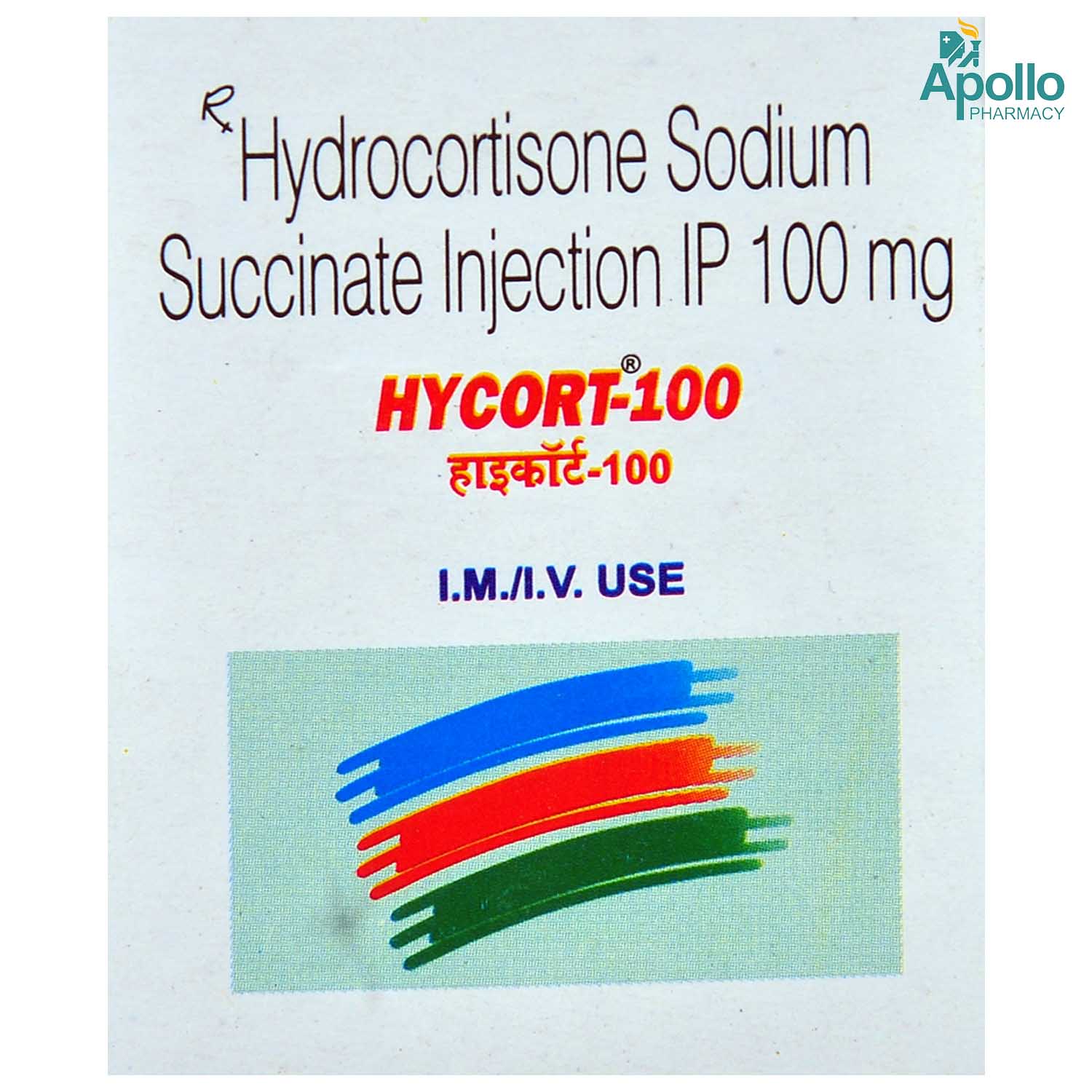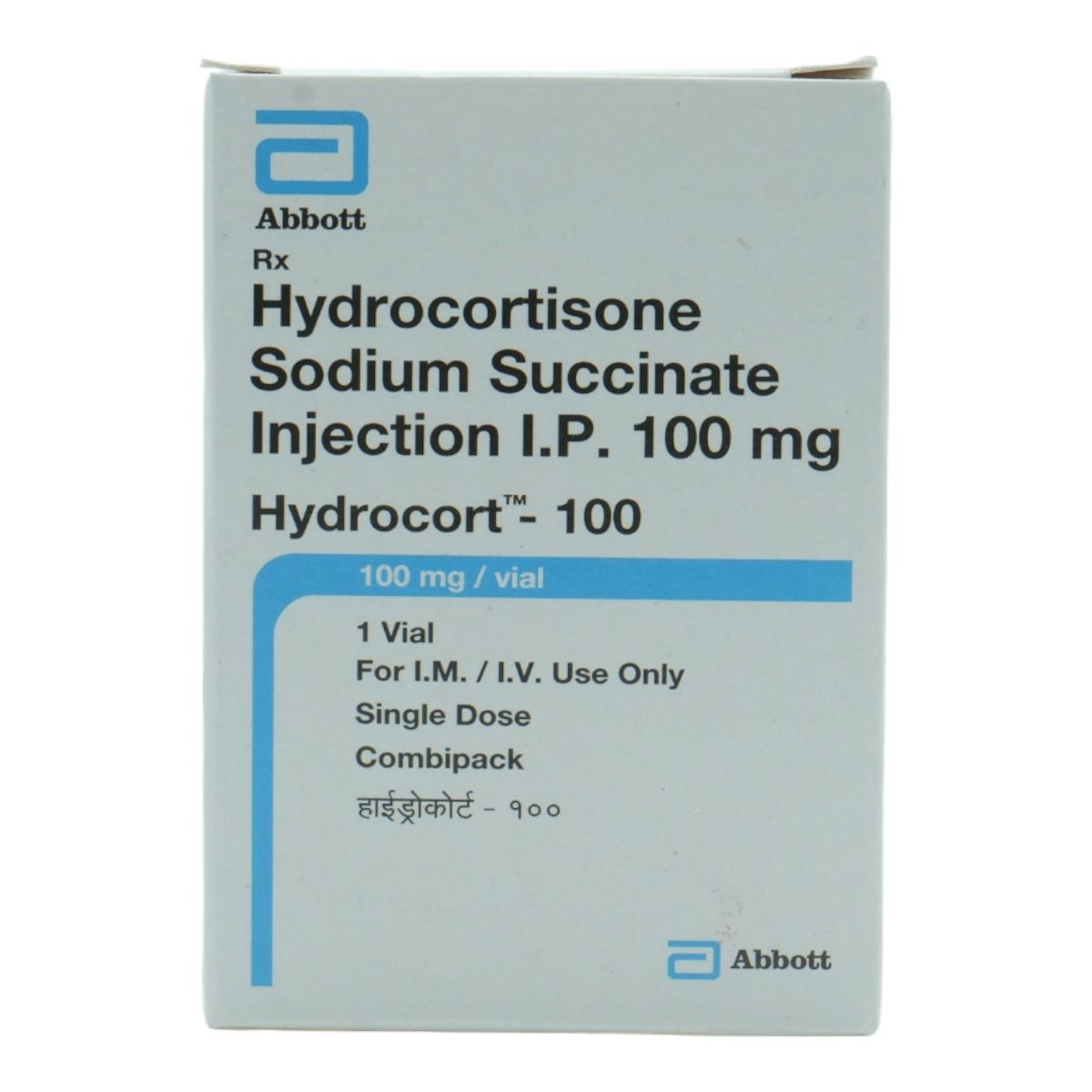Hydrocortisone
About Hydrocortisone
Hydrocortisone is used as a hormone replacement for cortisol (a natural hormone) when your body does not make enough cortisol (ex, Addison's disease). It is used as a replacement therapy for children with congenital adrenal hyperplasia. Also, it is used postoperatively and during serious illness or trauma in children with known adrenal insufficiency or doubtful adrenocortical reserve. Also, it is used to treat various illnesses involving inflammation (swelling, redness, heat, and tenderness) in the body, such as severe allergies, asthma, certain forms of arthritis, blood, skin, kidney, eye, thyroid and intestinal disorders, and certain types of cancer.
Hydrocortisone contains 'Hydrocortisone', a corticosteroid that works as a replacement therapy for the natural steroid hormone cortisol. Also, it works by inhibiting the release of certain chemical messengers in the body that cause redness, itching, and swelling.
Take Hydrocortisone as prescribed. Your doctor will advise you on how often you take Hydrocortisone based on your medical condition. Sometimes, Hydrocortisone may cause common side effects such as acne, increased hair growth, weight gain, dizziness, headache, nausea, tiredness or indigestion. Most of these side effects of Hydrocortisone do not require medical attention and gradually resolve over time. However, if the side effects persist or worsen, please consult your doctor.
If you are allergic to Hydrocortisone or any other medicines, please tell your doctor. If you are pregnant or a nursing mother, please inform your doctor before taking Hydrocortisone. If you have been vaccinated recently or are about to get vaccinated, inform your doctor before taking Hydrocortisone. Drive only if you are alert after taking Hydrocortisone. If you have an infection, avoid taking Hydrocortisone, and if you develop any new infection while on treatment with Hydrocortisone, consult a doctor.
Uses of Hydrocortisone
Medicinal Benefits
Hydrocortisone contains 'Hydrocortisone', a corticosteroid used as a hormone replacement for cortisol (a natural hormone) when your body does not make enough cortisol (example: Addison's disease). It is used as a replacement therapy for children with congenital adrenal hyperplasia. Also, it is used postoperatively and during serious illness or trauma in children with known adrenal insufficiency or doubtful adrenocortical reserve. Also, it works by inhibiting the release of certain chemical messengers in the body that cause redness, itching, and swelling. Thus, it is used to treat various illnesses involving inflammation (swelling, redness, heat, and tenderness) in the body, such as severe allergies, asthma, certain forms of arthritis, blood, skin, kidney, eye, thyroid and intestinal disorders, and certain types of cancer.
Directions for Use
Storage
Side Effects of Hydrocortisone
- Acne
- Increased hair growth
- Weight gain
- Dizziness
- Headache
- Nausea
- Tiredness
- Indigestion
Drug Warnings
Please tell your doctor if you are allergic to Hydrocortisone or other medicines. If you are pregnant or a nursing mother, please inform your doctor before taking Hydrocortisone. If you have been vaccinated recently or are about to get vaccinated, inform your doctor before taking Hydrocortisone. Some people may experience mood changes (feeling depressed or high), difficulty in thinking or being confused and losing their memory, feeling anxious, sleeping problems, feeling, hearing, or seeing things that do not exist, and having strange and frightening thoughts. If you experience any of these problems, please consult your doctor immediately. If you have an infection, avoid taking Hydrocortisone, and if you develop any new infection while on treatment with Hydrocortisone, consult a doctor.
Drug Interactions
Drug-Drug Interactions: Inform your doctor if you are taking antidiabetic drugs (insulin), non-steroidal anti-inflammatory drugs (aspirin, ibuprofen, diclofenac, naproxen), blood thinners (warfarin), cardiac glycosides (digoxin), diuretics (water tablets), medicines used to treat glaucoma (acetazolamide), central nervous system stimulant (ephedrine), antituberculosis drugs (rifabutin, rifampicin), anticonvulsants (phenobarbital, phenytoin, carbamazepine, primidone), growth hormone (somatropin), oral contraceptive, anti-progesterone (mifepristone), antifungal (amphotericin B, ketoconazole), antibiotic (erythromycin), anti-asthma drug (theophylline), an ulcer healing drug (carbenoxolone) and anti-HIV drugs (ritonavir).
Drug-Food Interactions: Hydrocortisone may interact with St. John's wort (an antidepressant herbal supplement).
Drug-Disease Interaction: Avoid taking Hydrocortisone if you have candida, thrush, or other infections. If you have ever had severe depression or bipolar disorder, tuberculosis (TB), glaucoma (increased pressure in the eye), have recently had a heart attack or high blood pressure, fits, osteoporosis (thinning of bones), diabetes, thyroid problems, weakened immune system, stomach ulcers, liver, kidney or heart problems, infection, inform your doctor before taking Hydrocortisone.
Drug-Drug Interactions Checker List:
Safety Advice

Alcohol
consult your doctorThe interaction of Hydrocortisone with alcohol is unknown. Please consult your doctor if you have concerns.

Pregnancy
consult your doctorLimited data is available on the effect of Hydrocortisone in pregnancy. Hence, if you are pregnant or planning pregnancy, inform your doctor before taking Hydrocortisone. Your doctor may prescribe this medicine if the benefits outweigh the risks.

Breast Feeding
consult your doctorSmall amounts of Hydrocortisone may be excreted in breast milk. Therefore, if you are a nursing mother, inform your doctor before taking Hydrocortisone. Your doctor may prescribe this medicine if the benefits outweigh the risks.

Driving
cautionHydrocortisone may cause dizziness or extreme tiredness. If you experience these symptoms, avoid driving or operating machines.

Liver
consult your doctorIf you have a pre-existing or a history of liver disease, inform your doctor before taking Hydrocortisone. Your doctor may adjust the dose of this medicine or prescribe a suitable alternative based on your condition.

Kidney
consult your doctorIf you have a pre-existing or a history of kidney diseases, inform your doctor before taking Hydrocortisone. Your doctor may adjust the dose of this medicine or prescribe a suitable alternative based on your condition.

Children
cautionHydrocortisone should be used in dose and duration as advised by the doctor. Your doctor may monitor the growth of the child while on treatment with this medicine.
Habit Forming
Diet & Lifestyle Advise
- Eat foods rich in quercetin (a flavonoid), such as apples, cherries, broccoli, spinach, and blueberries.
- Consuming food rich in probiotics helps in developing the immune system against allergies.
- Limit intake of food that might trigger allergies, such as dairy products, soy, eggs, and nuts.
- Avoid the consumption of foods with excess sugar, as it may flare up inflammation.
- Include fruits, vegetables, whole grains, healthy fats, and fish in your diet.
- Reducing stress and maintaining a regular sleep pattern would be helpful.
- Avoid getting in contact with harsh soaps, detergents, and rough fabrics.
Special Advise
Hydrocortisone may increase the risk of infections, especially if taken for a prolonged period, as it may weaken the immune system. Therefore, it is advised to stay away from people having chickenpox, measles, or shingles as they can severely affect someone while taking Hydrocortisone.
Patients Concern
Disease/Condition Glossary
Addison's disease: It is a disorder in which adrenal glands do not produce enough steroid hormones, cortisol and aldosterone. It is also known as hypocortisolism or primary adrenal insufficiency. The symptoms include darkening of the skin, extreme tiredness, nausea and dizziness upon standing.
Inflammation: It is a response generated by damage to living tissues. This response is a defence mechanism to protect the body from injury, infection, or disease. The symptoms of inflammation include redness, pain, swelling, heat, or loss of function. Inflammation can be caused by certain medications, acute and chronic conditions, or exposure to foreign materials or irritants your body can’t eliminate easily.
FAQs
Hydrocortisone is used as a hormone replacement for cortisol (a natural hormone) and to treat inflammation (swelling, redness, heat, and tenderness), such as severe allergies, asthma, certain forms of arthritis, blood, skin, kidney, eye, thyroid and intestinal disorders, and certain types of cancer.
Hydrocortisone contains Hydrocortisone, a corticosteroid that works as a replacement therapy for the natural steroid hormone cortisol. Also, it works by inhibiting the release of certain chemical messengers in the body that cause redness, itching, and swelling.
Hydrocortisone may cause mental problems, especially if taken in high doses. However, inform your doctor immediately if you notice mood changes or have depression and suicidal thoughts while taking Hydrocortisone.
A blue steroid card consists of patient instructions and provides information to healthcare providers regarding the details of prescribed steroids. It is given to patients using Hydrocortisone for more than three weeks. The patient is advised to always carry a steroid card and show it to the nurse, midwife, doctor, dentist or anyone who treats them.







